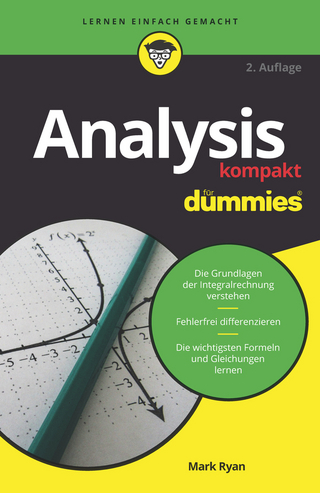
Introduction to the Numerical Analysis of Incompressible Viscous Flows
Seiten
2008
Society for Industrial & Applied Mathematics,U.S. (Verlag)
978-0-89871-657-3 (ISBN)
Society for Industrial & Applied Mathematics,U.S. (Verlag)
978-0-89871-657-3 (ISBN)
With mathematical rigour and physical clarity, this text treats the numerical analysis of finite element computational fluid dynamics at a level appropriate for first year graduate students in applied mathematics, engineering and physics. The text progresses from the mathematical preliminaries of energy and stress to finite element computational fluid dynamics.
This book treats the numerical analysis of finite element computational fluid dynamics. Assuming minimal background, the text covers finite element methods; the derivation, behaviour, analysis, and numerical analysis of Navier–Stokes equations; and turbulence models used in simulations. Each chapter on theory is followed by a numerical analysis chapter that expands on the theory. Introduction to the Numerical Analysis of Incompressible Viscous Flows provides the foundation for understanding the interconnection of the physics, mathematics, and numerics of the incompressible case, which is essential for progressing to more complex flows. With mathematical rigour and physical clarity, the book progresses from the mathematical preliminaries of energy and stress to finite element computational fluid dynamics in a manageable format.
This book treats the numerical analysis of finite element computational fluid dynamics. Assuming minimal background, the text covers finite element methods; the derivation, behaviour, analysis, and numerical analysis of Navier–Stokes equations; and turbulence models used in simulations. Each chapter on theory is followed by a numerical analysis chapter that expands on the theory. Introduction to the Numerical Analysis of Incompressible Viscous Flows provides the foundation for understanding the interconnection of the physics, mathematics, and numerics of the incompressible case, which is essential for progressing to more complex flows. With mathematical rigour and physical clarity, the book progresses from the mathematical preliminaries of energy and stress to finite element computational fluid dynamics in a manageable format.
William Layton is a Professor of Mathematics at the University of Pittsburgh. He is author of numerous papers in computational fluid dynamics and is currently interested in turbulence modelling and simulation.
Foreword; Preface; 1. Mathematical preliminaries: energy and stress; 2. Approximating scalars; 3. Vector and tensor analysis; 4. Approximating vector functions; 5. The equations of fluid motion; 6. The steady Navier–Stokes equations; 7. Approximating steady flows; 8. The time-dependent Navier–Stokes equations; 9. Approximating time-dependent flows; 10. Models of turbulent flow; Appendix.
| Erscheint lt. Verlag | 4.12.2008 |
|---|---|
| Reihe/Serie | Computational Science and Engineering |
| Verlagsort | New York |
| Sprache | englisch |
| Maße | 178 x 253 mm |
| Gewicht | 430 g |
| Themenwelt | Mathematik / Informatik ► Mathematik ► Analysis |
| Naturwissenschaften ► Physik / Astronomie ► Strömungsmechanik | |
| ISBN-10 | 0-89871-657-8 / 0898716578 |
| ISBN-13 | 978-0-89871-657-3 / 9780898716573 |
| Zustand | Neuware |
| Haben Sie eine Frage zum Produkt? |
Mehr entdecken
aus dem Bereich
aus dem Bereich
Band 5: Hydraulik, Stromfadentheorie, Wellentheorie, Gasdynamik
Buch | Softcover (2024)
De Gruyter Oldenbourg (Verlag)
59,95 €


